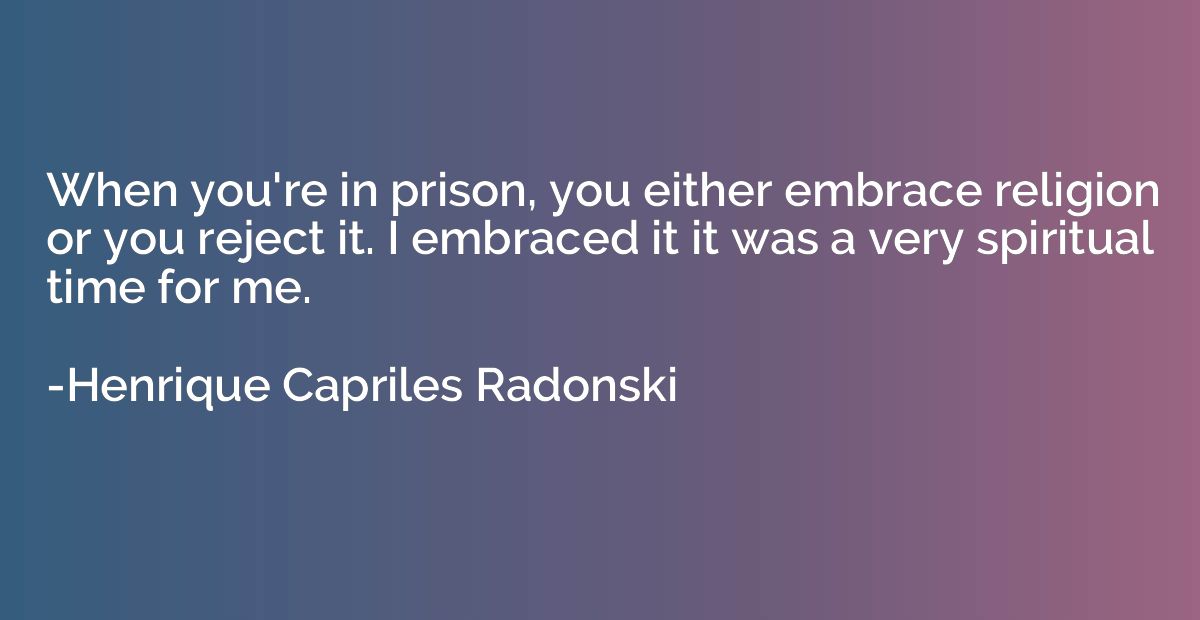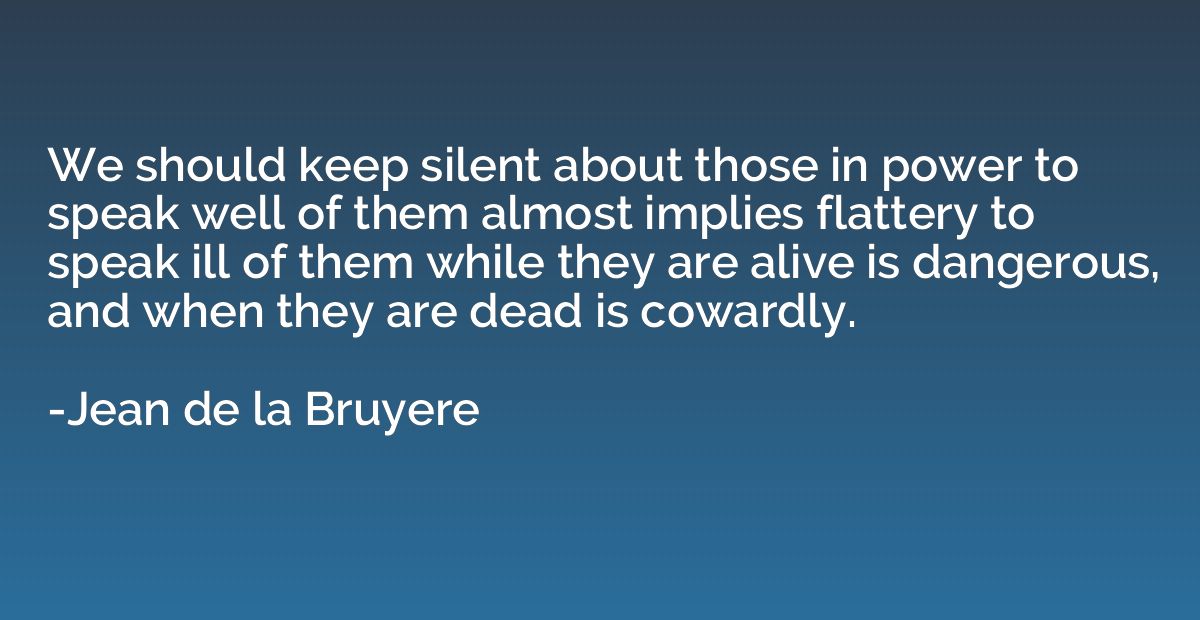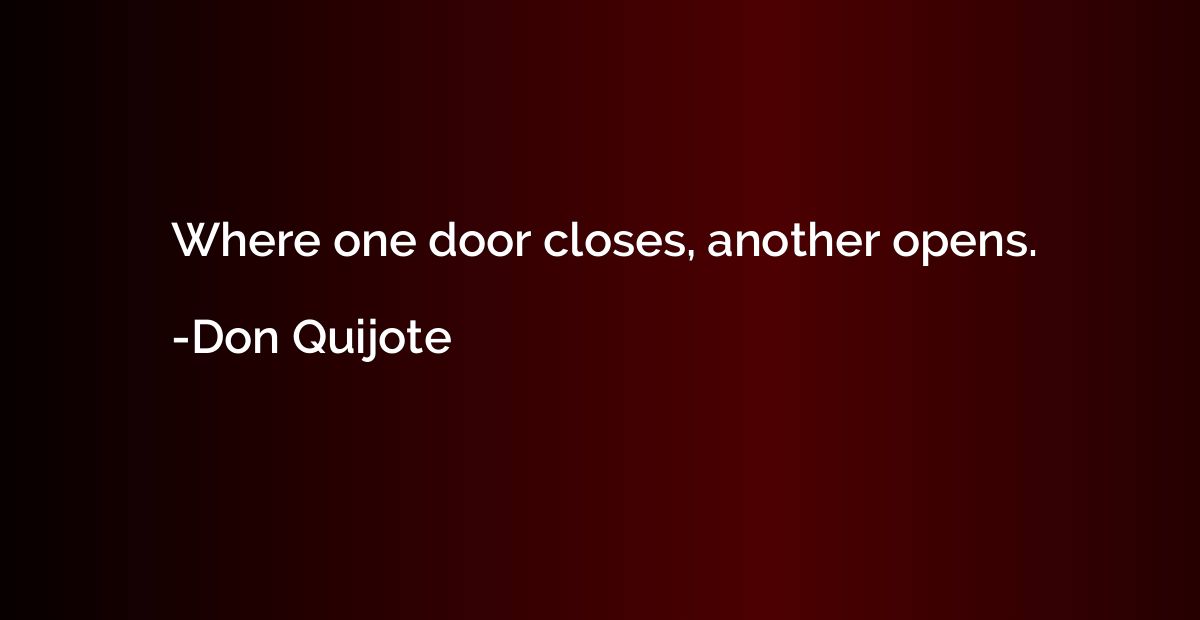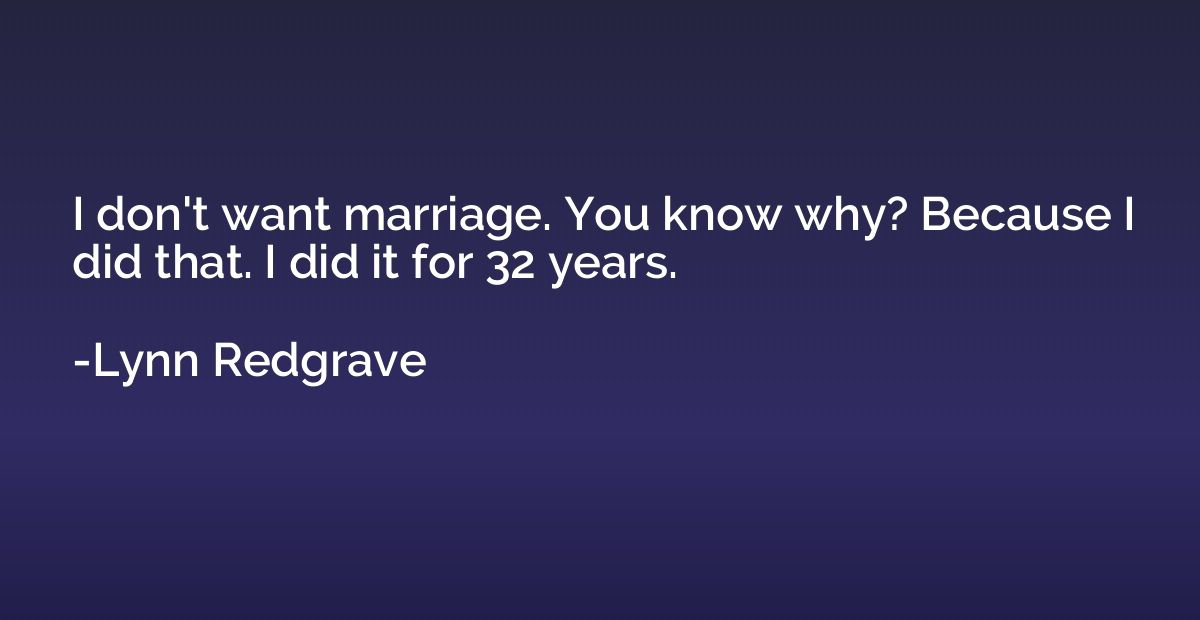Quote by Henrique Capriles Radonski
When you're in prison, you either embrace religion or you reject it. I embraced it it was a very spiritual time for me.

Summary
This quote reflects the transformative power of religious beliefs in the context of incarceration. It suggests that being in prison presents individuals with a choice: to either accept and adopt religious faith or completely dismiss it. The person speaking states that they chose to embrace religion during their time in prison, describing it as a deeply meaningful and spiritual experience. This implies that religion can provide solace, guidance, and a sense of purpose for those enduring the challenges and confinement of prison life.














